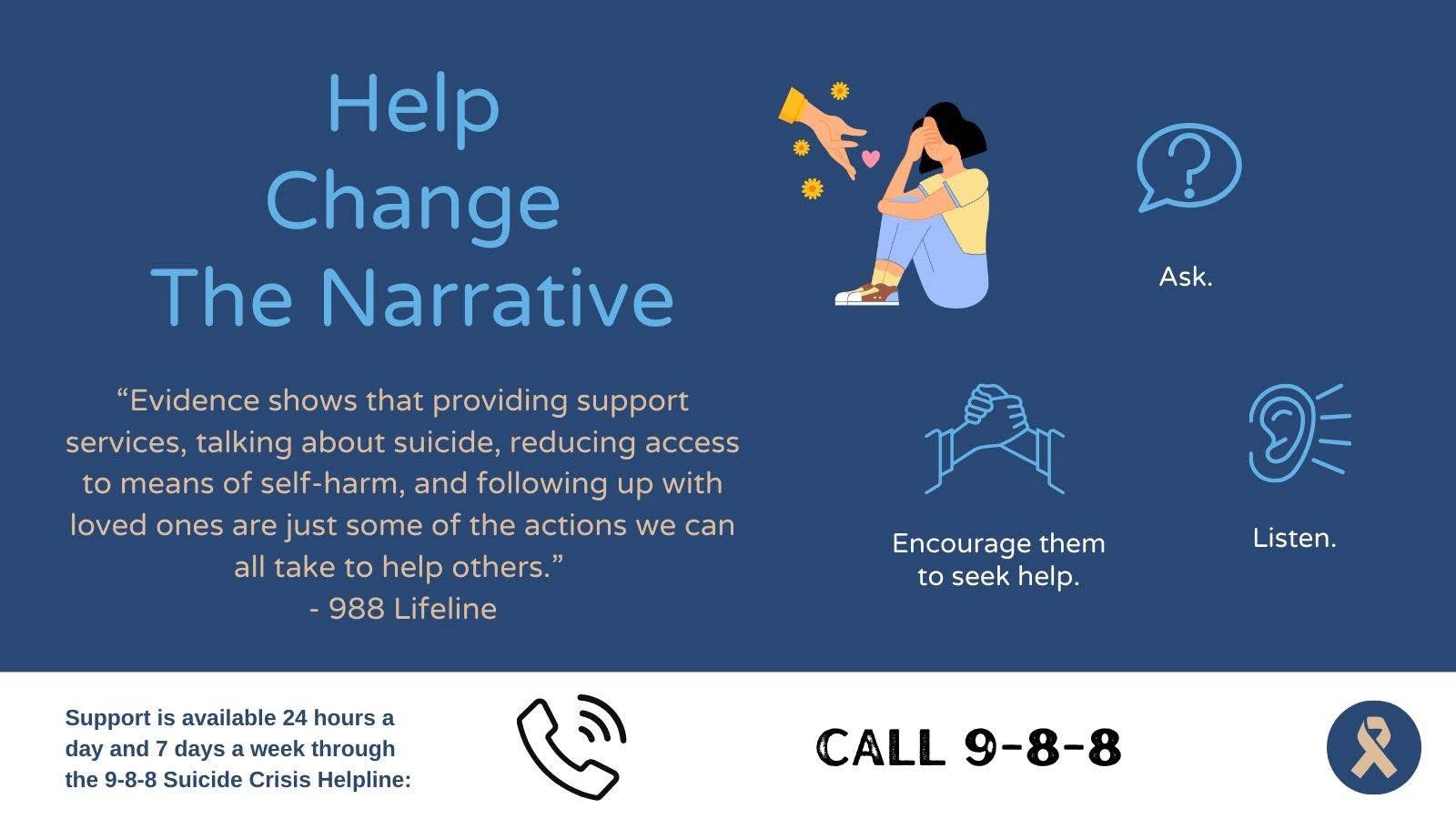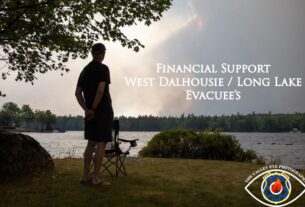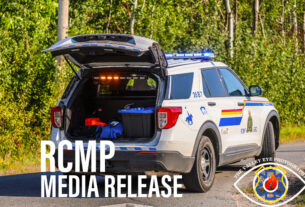Loved ones within our communities suffer every day from the effects of suicide.
“More than 720,000 people across the world die due to suicide every year.” – World Health Organization.
With the Annapolis Valley being so tight-knit, the impacts are much harder. Suicide and its impacts are serious and an increasing problem globally and locally.
If someone is thinking or talking about suicide or death, or has a plan to end their life, it’s important to seek help and know that it’s okay!
“It’s important to know that asking someone if they’re thinking about suicide won’t increase the risk. Asking can lead to important conversations.” – Goverment of Canada
Suicide is the result of many complex factors and these may be different from person to person. Although it’s very difficult to predict who might end their life, signs and behaviours that suggest someone may need help include:
Feeling:
• depressed
• that they are a burden
• like they have no purpose in life or reason for living
• trapped or that there’s no other way out of a situation
• hopeless about the future or like life will never get better
Behaviours such as:
• being agitated
• changing eating habits
• changing sleeping habits
• giving away their possessions
• increasing substance use, like drugs, alcohol and inhalants
• withdrawing from family, friends or activities they normally enjoy
• saying goodbye or talking about what will happen after their death
• anxiety or significant mood changes, such as anger, sadness or helplessness
• talking about being a burden to someone or about being in unbearable pain
• increasing high-risk behaviours such as reckless driving, dangerous sports or activities
Suicide can affect people of all ages and backgrounds, leaving a major gap for families and friends.
It also leaves long-lasting images for first responders, causing PTSD and many other traumatic injuries leading to suicide.
Cracking the stigma is the most important. There is no shame or guilt in asking for help and support. The stigma behind it makes it hard for our loved ones to reach out and find the appropriate support needed.
There are many who reach out for help without following through and there are many who continue to struggle alone with little to no support.
One conversation, listening and understanding can make a difference.
In 2021, suicide was the third leading cause of death among 15–29-year-olds globally.
Every year, approximately 4,500 people in Canada die by suicide, which is equivalent to 12 people dying by suicide every day.
If you or someone you know is in immediate danger, please call 9-1-1.
If you or someone you know is thinking about suicide, call or text 9-8-8.
Support is available 24 hours a day, 7 days a week through 9-8-8: Suicide Crisis Helpline.
In Nova Scotia we also have the Provincial Mental Health and Addictions Crisis Line toll-free at 1-888-429-8167
Help is also available through Kids Help Phone (1-800-668-6868) and the Hope for Wellness Help Line (1-855-242-3310).
Some Information directly sourced from the following links ⤵️
https://www.canada.ca/en/public-health/services/suicide-prevention/suicide-canada.html
https://www.who.int/news-room/fact-sheets/detail/suicide
https://novascotia.ca/mental-health-and-wellbeing/




